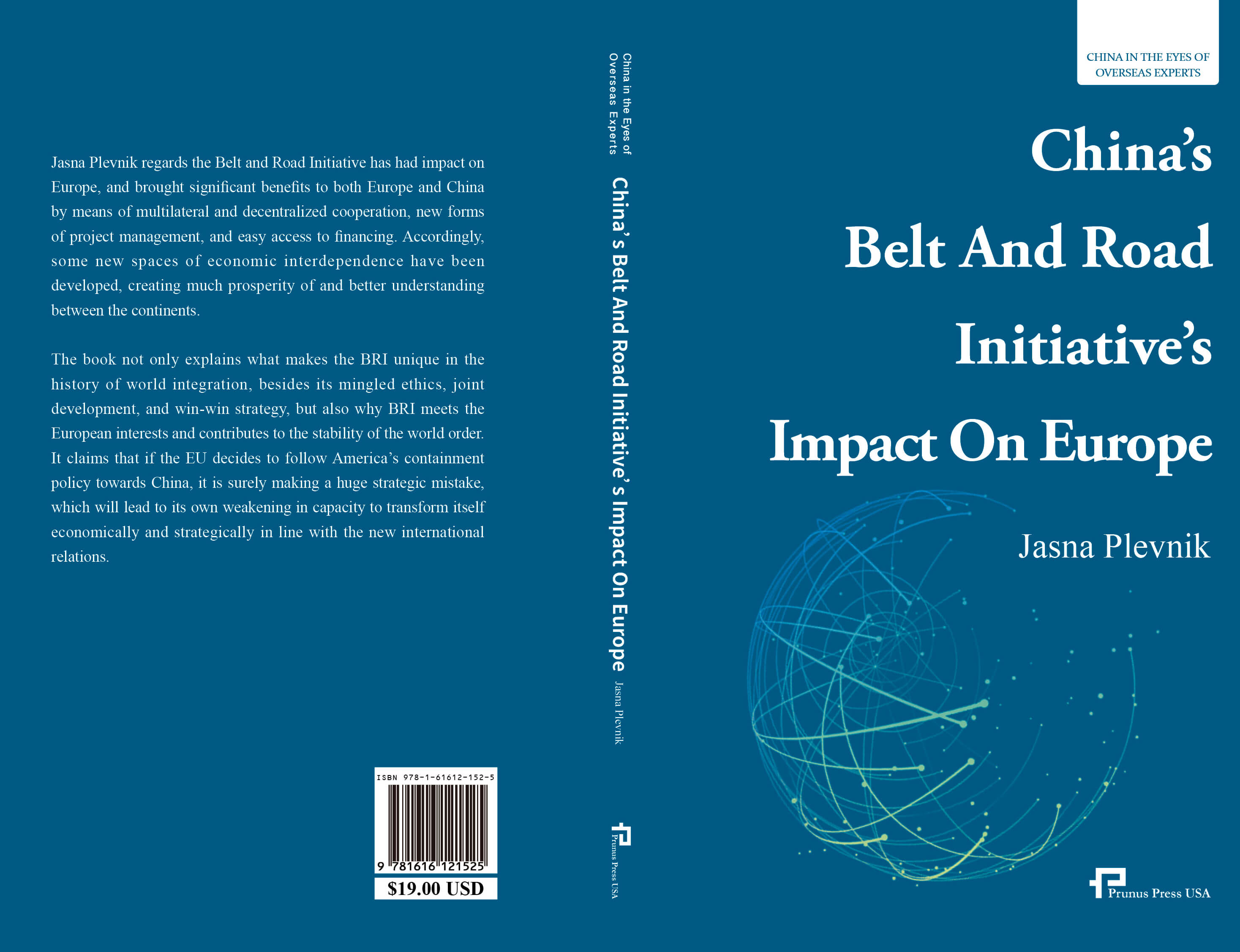JASNA PLEVNIK'S NEW BOOK “CHINA’S BELT AND ROAD INITIATIVE’S IMPACT ON EUROPE“, PRUNUS PRESS USA, 2022
- Details
Jasna Plevnik's new book traces the impact of China's grand strategy, the Belt and Road Initiative, in Europe discussing its achievements from the perspective of the BRI's values and goals and Europe's aims and interests within the Belt and Road

The book seamlessly moves from explaining the uniqueness of the Belt and Road Initiative to exploring the BRI corridors and sub-corridors that operate in Europe and how the BRI has enlarged its geographical scope, increased the number of partners, and complied with the EU standards and rules.
This highly readable book illuminates those trends in Europe that threaten the Belt and Road
Initiative development in Europe from the Covid-19 pandemic, Brussels' tendency to prioritise the USA's geostrategic interests in its relations with China over its interests, to the Ukraine war that has exposed Europe to the processes that are opposite to the processes implemented by the BRI's connectivity diplomacy.
The book considers the BRI's further expansion in Europe that is fraught with uncertainty which raises the question of how the BRI will react to the rise of instability in Europe, confiscation of private property of investors, and the EU's reluctance to make it clear whether it views China as a partner or a rival.
Jasna Plevnik examines the change in the European Union's discourse on the BRI, which has turned from support, optimism, and synergy with the goals of the BRI to criticism of it as a "strategic challenge" that reflects the rhetoric of the US administration and its increasingly strong pressure on the EU in the name of security, which has made the European Union's foreign policy less independent than it was when the Belt and Road was presented to Europe.
The book predicts the Belt and Road implementation dynamic in Europe might be slowed down by current and some future geopolitical risks that might be caused by the EU's ambitions to compete at a new "geopolitical chessboard" in the Indo-Pacific.
The author argues why the geopolitical approach towards the BRI is not in European interest and stability in the world order claiming that if the EU decided to follow America's containment policy towards China it would be a huge strategic mistake and weakening of its capacity to compete globally and preserve its status of global economic power.
It also provides insight into the Western initiatives launched as alternatives to the New Silk Road showing the BRI stands as a benchmark for all of them in terms of goals, concepts, and geographic scope, and thus, the West indirectly, admits China's Belt and Road as a new generation model for advancing the world governance and economic development through connectivity.
The book is based on both: balanced pessimism and idealistic thinking that the Western global connectivity initiatives could one day merge with the BRI
because cooperation is in line with the Zeitgeist of our network era, regardless of the U.S. politics toward China that is currently developing as an antithesis to the BRI, modernisation, and stability in international relations.
Jasna Plevnik concludes the BRI's ability to project its goals with the horizon of 2050 in mind and to position itself as a tool of
China's vision of the Community with Shared Future for Mankind has the necessary strength to return Europe-China policy on the road towards building multipolarity in the world order.